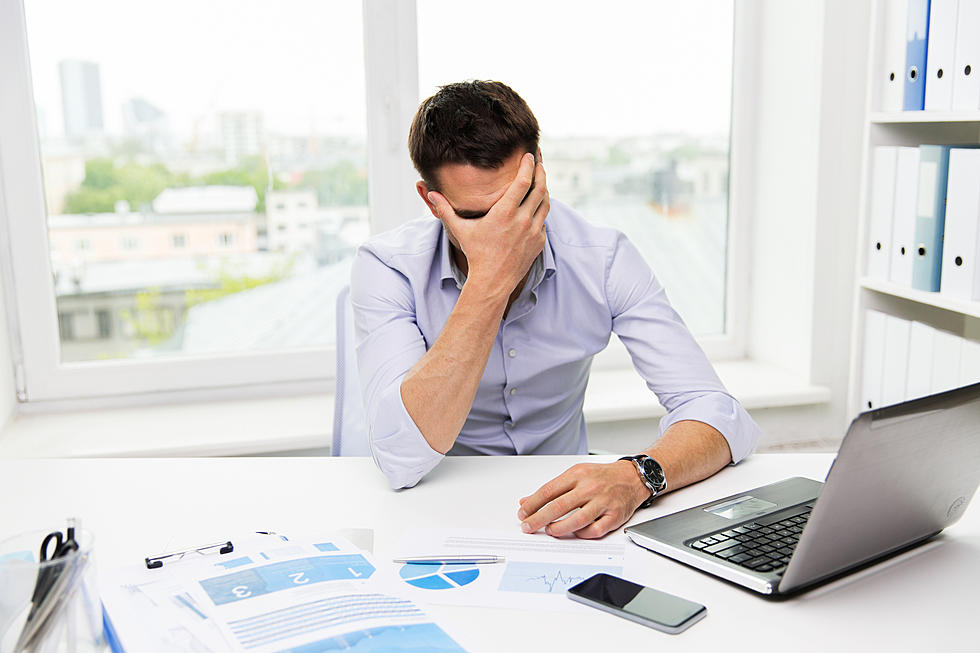
In NJ and Across the Country, Worker Burnout Keeps Getting Worse
You might have missed it at the time, but two years ago, before most of us were concerned with the findings of the World Health Organization, the WHO officially characterized burnout in the workplace as an "occupational phenomenon."
Since then, work-from-home orders and career stagnation caused by the COVID-19 pandemic may have turned burnout into a simple fact of life for many workers, perhaps permanently altering their work-life balance.
A new survey from staffing firm Robert Half finds 44% of workers feel more burnt out on the job than they were a year ago, compared to 34% who felt that way in the first part of 2020 as compared to 2019.
Specifically in the New York metro area, from which some workers moved to the Jersey suburbs when COVID broke out, or started to work from home in the Garden State instead of commuting in, that figure jumped to 48%.

The "home office" has presented new and frustrating challenges, from a lack of adequate resources to a feeling that workers can't truly disconnect from their duties.
"People are saying, you work from home or are you just living at work now?" Jennifer Holz, Robert Half branch manager, said. "You can't actually turn off at the end of the day as you could have when you were commuting before."
One quarter of those surveyed said they forfeited time off in 2020, leading to one-third saying they plan to take more than three weeks off this year, and a majority (57%) admitting craving an "awaycation" to travel and completely unplug.
Still, 28% feel they can't go off the grid completely while on vacation.
"People started to think that they should just be grateful for a job, and unfortunately companies had to downsize, so they took on way more of a workload and even forfeited vacation days," Holz said.
Just under half (49%) of those who said they were more burnt out last year identified an increased workload as the main reason why.
Whatever the cause, burnout is a major trend right now, according to Holz. It's in every work environment and organization, and the pandemic has "absolutely" played a part.
"There's a deeper issue at hand and it's not improving, unfortunately," Holz said, adding that the signs of burnout can include "incomplete work, missed deadlines, lower quality of work, negative attitude. They're things that are recognizable, and they're frustrating."
Employees are overworked and under-rested, as Holz put it, and while their employers were not responsible for government mandates, they should now be taking initiative to improve workplace culture.
"Treat the people you do have, especially if they've been loyal to you during this time, treat them well," Holz said. "Encourage time off."
Holz suggests employers find ways to lighten the mood — at least until summer vacations run their course and COVID restrictions loosen fully.
By the end of the summer, Holz does predict that work burnout will subside, at least a little bit.
NJ's most and least COVID vaccinated towns, by county
LOOK: What are the odds that these 50 totally random events will happen to you?
More From WPG Talk Radio 95.5 FM










